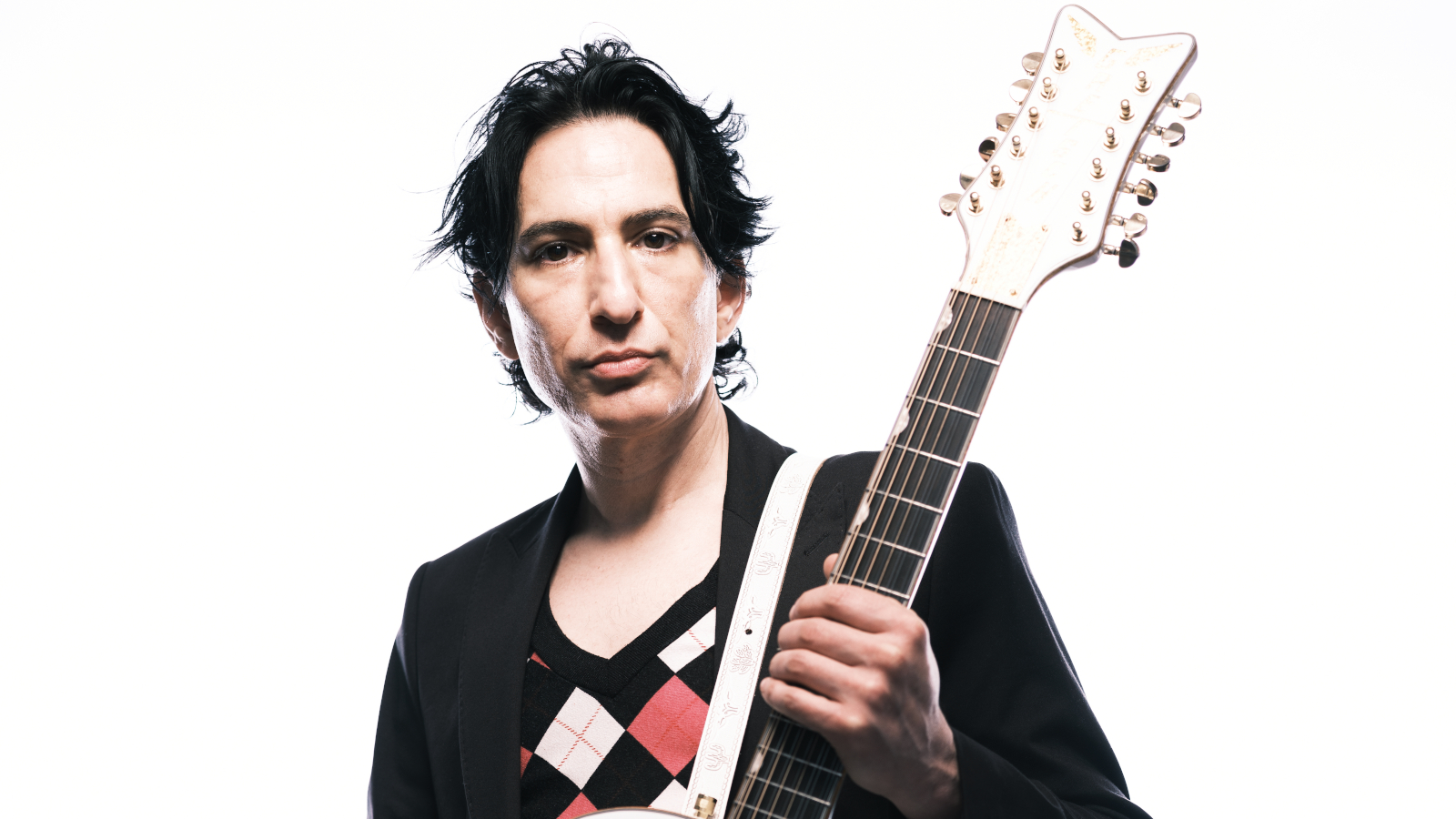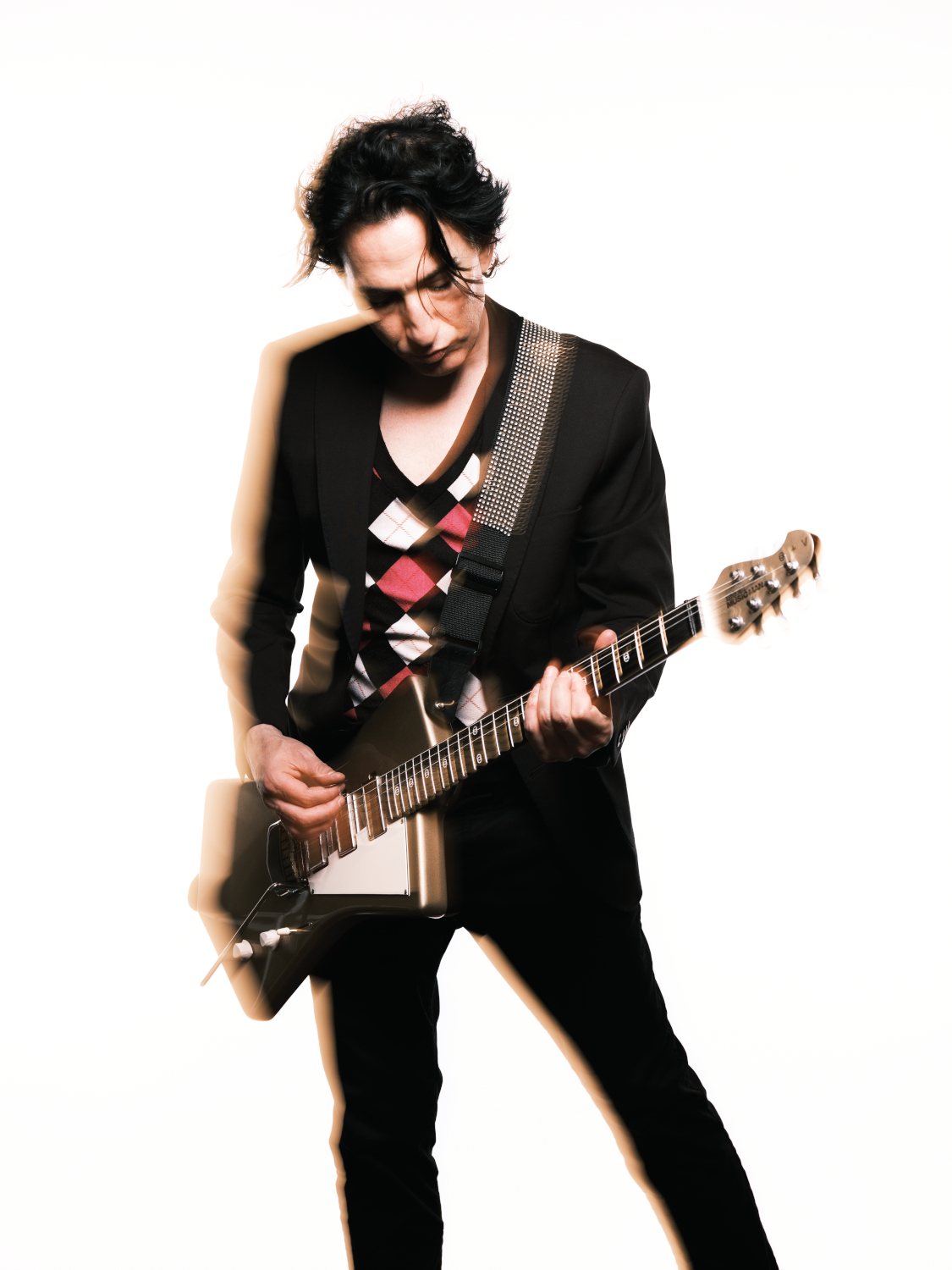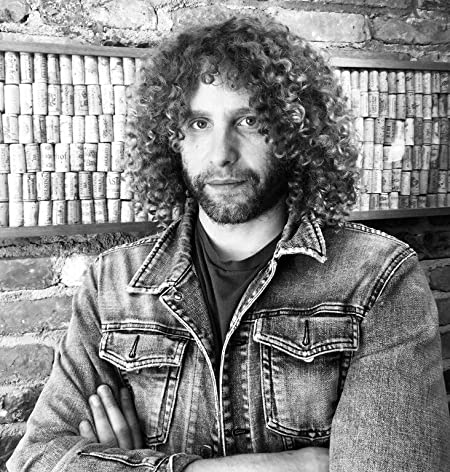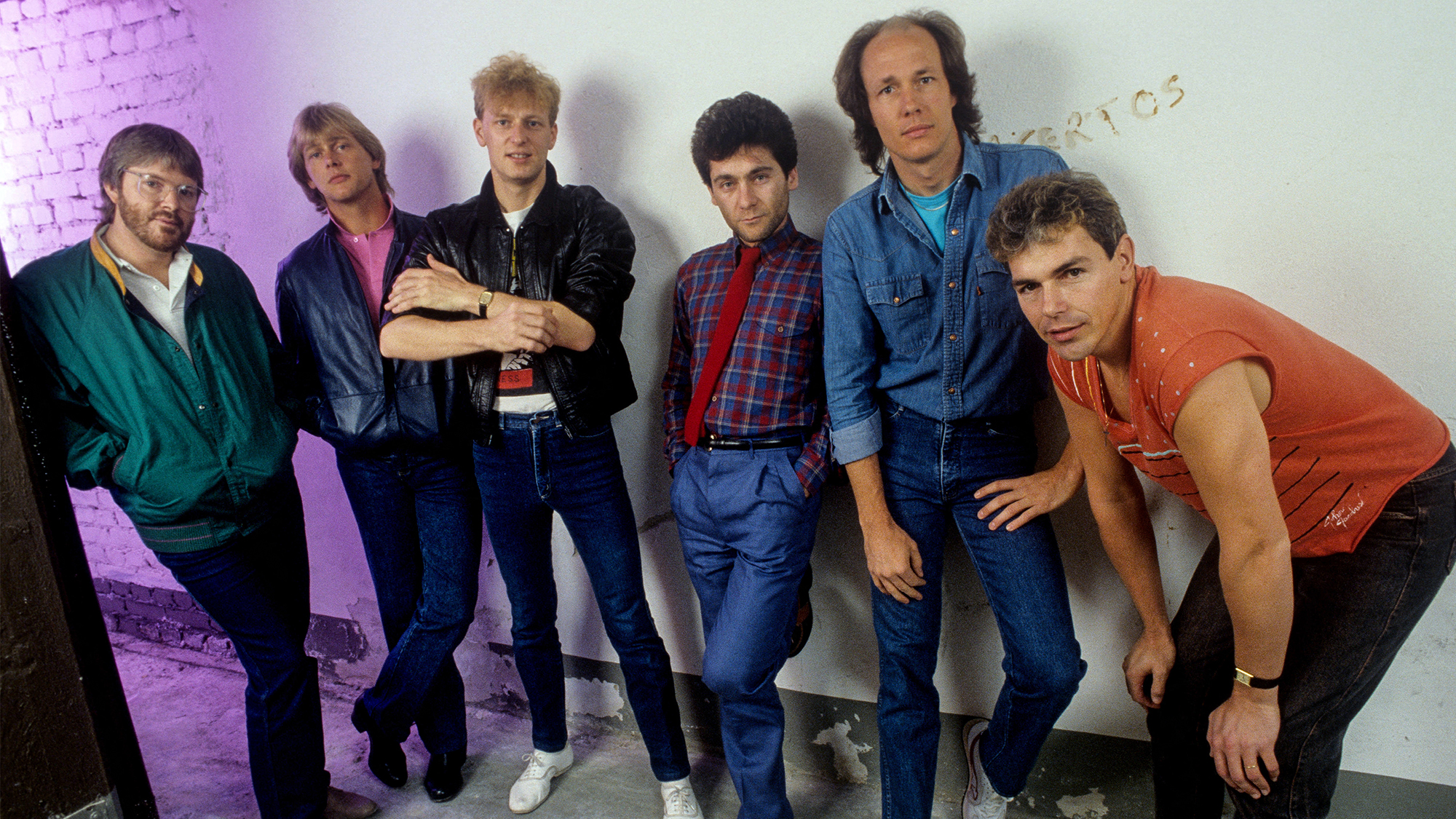“I Record Pretty Much Everything at My Apartment”: Jonny Polonsky’s Credits Include Johnny Cash, Donovan and Tom Morello, but His New Solo Album, ‘Rise of the Rebel Angels,’ Is a Homemade Marvel
Is it possible to record a great album at home on a budget? Absolutely! Critically lauded axe-slinger Jonny Polonksy reflects on his remarkable music career

“I love playing music,” Jonny Polonsky says. “To some other people it’s a career. But to me, it’s just my life.” And what a wild, colorful life it’s been so far. After releasing a series of homemade cassette tapes of his own music in the early ’90s, the Chicago-born singer-songwriter was invited by John Zorn to play his New Jewish Music festival in New York City, where, still a teenager, Polonsky was backed by a band featuring Mark Ribot, playing in front of an audience that included soon-to-be fan Jeff Buckley.
His solo career kicked off in earnest when super-producer Rick Rubin signed Polonsky to his American Recordings label, which released his acclaimed 1996 debut, Hi My Name Is Jonny. That album, a sharply written and incisive collection of infectious power-pop tunes, saw Polonsky performing all the instrumental parts and vocals himself, and was self-recorded at his childhood home.
Since then, Polonsky has continued to release critically lauded, if not necessarily commercially massive, solo efforts, making him something of a cult favorite among rock and pop aficionados in the know. At the same time, he’s experienced a remarkable career as a collaborator, with his name attached to recordings by everyone from Johnny Cash (he played on his posthumous releases American V and VI) and Neil Diamond to Tom Morello, the Dixie Chicks and Donovan.
Now 49, Polonsky continues to be incredibly prolific. Last year, he unveiled an eclectic trio project with Rage Against the Machine bassist Tim Commerford under the name 7D7D; the group issued its debut single, “Capitalism,” in December.
And now he’s back with Rise of the Rebel Angels, the first of two solo records he’ll release this year. The album has been issued by Loosegroove Records, the imprint headed by Pearl Jam guitarist Stone Gossard.
“He started playing me these demos that he had done in his apartment and small studios over the years,” Gossard says, recalling their partnership. “And I was just like, ‘Oh my god, can we put this record out?’ He’s just a ridiculously great guitar player, piano player and singer, and he comes from a place that really touches me and connects with me – this early ’70s to early ’80s era that, to me, has this T. Rex or Bowie quality. But then, at the same time, he inhabits his own musical world in a way that’s authentic and amazing.”
Stone told us about how he was blown away by the demos you played him.
All the latest guitar news, interviews, lessons, reviews, deals and more, direct to your inbox!
What happened was, I was working on a different record, and a friend of mine, Alain Johannes, who has played with Queens of the Stone Age and all these other bands, was mixing it. And he offered to pass it off to Stone. And then Stone loved the record, and he and I started talking.
He also asked if I had any demos lying around of anything else, just because he was curious. So I gave him dozens and dozens of things that I had done over the years. Some of them were, like, half-finished 20-second iPhone demos, and between him and me and my manager and a couple other people, we started picking off songs that would be cool to finish. And that became this record.
So what happened to the other record?
The album Stone initially heard and signed me to his label for, that’s going to come out later in the year. That one took a year and a half to make, and there’s an orchestra on two of the tunes and tons of guest musicians.
It was super-fucking expensive – I just put it on a credit card for a couple years – whereas this one ended up taking three weeks, start to finish, and it was super cheap. Once we picked out the tunes, I had some time off from work and I just blazed through it. So it’s two totally different approaches.
I use [IK Multimedia’s] AmpliTube for the guitars, which is great, and I have their AXE I/O [audio interface]
Jonny Polonsky
As is often the case on your records, you’re playing all the instruments on Rise of the Rebel Angels, correct?
Yes. I record pretty much everything at my apartment in Manhattan. I have Pro Tools on my computer. I use [IK Multimedia’s] AmpliTube for the guitars, which is great, and I have their AXE I/O [audio interface], which looks like half of a notebook. It’s really small.
And then I rented out a studio in Red Hook [Brooklyn], Atomic Sound, for one day, and spent maybe 10 or 11 hours doing pretty much all the drums for the entire record. If I had a huge budget I probably wouldn’t make the next record on my laptop all by myself. But you just do what you’ve gotta do.
What guitars do you have in your apartment?
It’s a lot of the same guitars I always use: a Gibson Flying V, an SG with P90s, a Joan Jett Melody Maker, an Ernie Ball Music Man Goldie – the St. Vincent model – a 12-string electric that First Act made for me a million years ago, a Squier Bass VI – that’s great! – and a bunch of acoustics.
One thing that I probably will never play in public, but that I love to record with, is a Schecter with a Sustainiac pickup and a Floyd Rose. I’m not gonna take that outta the house because, you know, it’s not my thing. [laughs]
And then for mics it’s basically a Shure SM7. I have a few mics, but I get lazy. and it’s so small in here, too. I knock something over every day because it’s like there’s no space. So if a mic is up, it tends to stay up forever.

How about amps?
I don’t even own an amp anymore, other than two little Marshall practice amps, one of which runs on batteries. And I’ve got a ton of pedals, but they’re all the way across the room. Really, I just use the pedals in AmpliTube. They sound so good. For me, something like AmpliTube is totally essential, because I wouldn’t be able to afford to go into a recording studio and spend all day getting tones.
And I just think the technology has really come a long way. I remember 20 years ago using the [Line 6] POD or whatever, and those things sound terrible, you know? [laughs]
The songs on Rise of the Rebel Angels go in so many directions stylistically. There’s rock, power-pop, glam, folk, piano ballads, punkier things. Where do you take musical influence from?
There’s so much. I love the Pretenders; Chrissie Hynde is a huge hero. Jeff Buckley. Oasis. The Beatles, obviously. Frank Black and the Pixies. Tom Waits. Mark Lanegan. The Replacements. Prince. I also love stuff like System of a Down – I’m really a huge fan of Daron Malakian’s guitar playing and songwriting.
And Julee Cruise – those records where Angelo Badalamenti did the music and David Lynch did the words: I’m a massive fan of those, especially the first one, [1989’s] Floating Into the Night. And of course I love all the ’70s glam stuff, like T. Rex, Bowie, Mott the Hoople. Sweet, Slade… All of that.
For me, something like AmpliTube is totally essential, because I wouldn’t be able to afford to go into a recording studio and spend all day getting tones
Jonny Polonsky
You play a variety of instruments on the record. But is guitar your go-to?
It’s definitely the instrument I feel most fluent on. I love drums and I love piano, but guitar comes easiest to me and it’s the one I’ve been playing the longest.
Is it your main songwriting tool?
Usually. Sometimes I’ll write on piano, or a synth sound will trigger something in me. Every once in a while I’ll write something in my head, like on a plane flight or when I’m out walking. But usually it’s from messing around on an acoustic guitar and finding some chords or a melody that feels good.
That’s what happened with, for instance, “Wrong Dove,” which is the second-to-last song on the album. I was just goofing around on the couch with a 12-string acoustic. And in retrospect, I can see that I’d been listening to a lot of [musician and producer] Alex G. I can hear that in it. It has that same kind of high falsetto vocal.
You play a variety of instruments on the record. But is guitar your go-to?
It’s definitely the instrument I feel most fluent on. I love drums and I love piano, but guitar comes easiest to me and it’s the one I’ve been playing the longest.
Is it your main songwriting tool?
Usually. Sometimes I’ll write on piano, or a synth sound will trigger something in me. Every once in a while I’ll write something in my head, like on a plane flight or when I’m out walking. But usually it’s from messing around on an acoustic guitar and finding some chords or a melody that feels good.
That’s what happened with, for instance, “Wrong Dove,” which is the second-to-last song on the album. I was just goofing around on the couch with a 12-string acoustic. And in retrospect, I can see that I’d been listening to a lot of [musician and producer] Alex G. I can hear that in it. It has that same kind of high falsetto vocal.
There’s also some great lead guitar work on the record, in particular on songs like “Everywhere All the Time,” and the first single, “Let It Rust,” which have very expressive slide work. And the closing track, “Live to Ride,” features a really over-the-top multitracked lead.
“Everywhere All the Time,” the lead in that is the melody from the theme from Body Double, the Brian De Palma film, which I’ve always loved. There’s always little musical Easter eggs that I’m intentionally or unintentionally leaving in. And I just thought that sounded cool in the song.
And something like “Live to Ride” – sometimes I get tired of having a pop tune with, like, a really tasteful solo. So on that one I was thinking more like Steve Vai, like, “How can I like ruin this song?” [laughs] And don’t get me wrong – I love Steve Vai. That’s not disparagement. I just thought that most people wouldn’t take a tune like that and put like a shredding solo on it. To me that felt sort of vulgar and inappropriate, which is why I wanted to do it. That one was done with the Schecter with the Sustainiac and the Floyd Rose, and I double- and triple-tracked it in places.
Overall, the recordings have so much dynamism. How do you capture that energy when you’re working alone in your apartment?
As far as getting an energetic performance, I don’t think it’s really any different whether you’re on your laptop in your bedroom or in a studio surrounded by your band and a bunch of engineers. You’re still just trying to create as much of a beautiful, powerful recording as you can.
As far as getting an energetic performance, I don’t think it’s really any different whether you’re on your laptop in your bedroom or in a studio
Jonny Polonsky
And there are other upsides. For example, on a lot of solos, I like to punch in and out, and so I don’t know that I’d be able to do something like “Live to Ride” if I was in a studio telling an engineer, “Go back a few bars and punch in here.” I’ll just do it so much more quickly on my own. If I have to think about it and verbalize it, it loses the spontaneity.
In addition to your own music, you’ve worked with a variety of legendary artists in different genres. How has that come to be?
It’s funny, when I was growing up in Chicago, everyone would play with each other and play with each other’s bands, and you would just sort of meet people by happenstance. And when I moved to L.A. I felt like it was the exact same thing. I fell in with Rick Rubin, and that led to playing on the Johnny Cash record and the Neil Diamond stuff, and having all these different experiences playing with people that make up, like, half of my record collection.
And it’s been incredible and super-inspiring, and you always learn something. But I really think you just try to build your life how you want to build it, and you surround yourself with the people that excite you and thrill you and inspire you. And hopefully you get to play the music you want to play.
As far as how it happens, it’s interesting sometimes looking back, because it always just starts with a phone call or whatever, like, “Hey, are you available?” And the next thing happens and the next thing happens… and then, you know, a couple decades later someone in a magazine asks you about the pattern. [laughs]
So I don’t know. I just want to be involved with as much cool stuff as I can, and make as much music as I can and be around amazing people and have as much fun as I can. And hopefully that will continue.
Rich is the co-author of the best-selling Nöthin' But a Good Time: The Uncensored History of the '80s Hard Rock Explosion. He is also a recording and performing musician, and a former editor of Guitar World magazine and executive editor of Guitar Aficionado magazine. He has authored several additional books, among them Kurt Cobain: Montage of Heck, the companion to the documentary of the same name.



